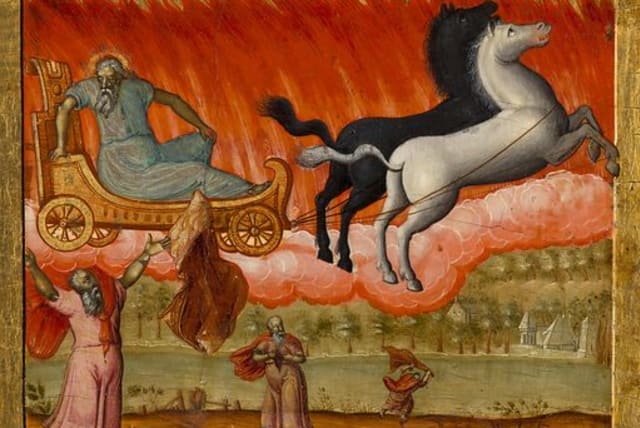Part 8 - Relativity of Death: Life and death inside a Black Hole – opinion

What physics tells us about Black Holes, infalling astronaut and more?
Let me remind the reader that, according to the General Theory of Relativity, for an external observer, the infalling astronaut will never cross the event horizon of the Black Hole. As the infalling astronaut approaches the event horizon, the time communicated by light signals slows down asymptotically to standstill. As a result, to the external observer, the infalling astronaut is frozen at the event horizon. At the same time, the account of the infalling astronaut will be different. They will cross the event horizon without noticing it.
This obvious contradiction prompted the renowned physicist Leonard Susskind to put forward the ‘Complimentary Principle’ saying that there could be one account or another, but not the two together. In Part 3 of this essay (What is Death?), I put forward the idea that the result of death relative to a certain world is a complete and irreversible loss of human agency relative to that world. From this point of view, after the crossing of the event horizon the astronaut is technically dead relative to the area of spacetime outside of the event horizon, since their ability to communicate and act beyond the event horizon or to take part in any kind of information exchange is completely and irreversibly lost.
At the same time, physics tell us that at least for a certain amount of time, the infalling astronaut will be alive relative to the spacetime inside event horizon.
The process of crossing the event horizon of a Black Hole cannot be compared to the hypothetical isolation of the astronaut behind thick walls. This situation is qualitatively different.
What is the fate of the astronaut inside the Black Hole?
In a freefall, we do not experience the force of gravitation, except for the tidal force, which is the difference of the gravitational force applied to the different parts of the human body. On the surface of the Earth, the tidal force is miniscule, but inside the event horizon of a Black Hole, it can grow without bounds and tear the astronaut to pieces. Nevertheless, this process takes some time. According to physical theories, the astronaut on a spaceship can avoid the destructive action of the tidal force by using the process of acceleration and deceleration for a certain period of time. But the endgame is always the same. The astronaut will find themselves in the center of the Black Hole.
What happens there is a matter of speculation. According to the General Theory of Relativity, their body will disappear together with spacetime. According to the Kabbalah of Information or the theory of ‘wormholes’, they will find themselves in another world. Whatever the outcome, this type of death does not entail the decomposition of the body and does not leave any kind of traces of the body in our world.
This unique situation raises a lot of difficult questions. What about the resurrection of the astronaut who disappeared in the Black Hole?
According to the Holy Scripture, Enoch, the father of Methuselah, was taken to heaven alive. This also happened to the prophet Elijah. Can we compare these two events with the disappearance of the astronaut in the Black Hole?
In my view, there are some clues here, and research must be continued.
Before I finish this essay, I would like to share with the reader the following analogy.
In our world, at any given moment of time, which we call ‘now’, we receive information about certain events. In an instant, the information about these events enters the past, remains there in a fixed form, and never comes back.
Based on that, we can consider ourselves as sitting on the event horizon of an ‘Informational Black Hole’. We absorb ‘infalling information’, but it never comes back. Since we are uncertain about the future, our informational entropy is high, but we are fully certain about our past, so our information entropy is also zero. When we die, the process of absorbing information stops and for external observers (other people), we are frozen at the event horizon of the ‘Informational Black Hole’ corresponding to the moment of our death. At the very moment of our death, the soul loses connection to the body: it ‘falls’ through the event horizon of the ‘Informational Black Hole’.
To purchase Eduard Shyfrin’s book ‘From Infinity to Man: The Fundamental Ideas of Kabbalah Within the Framework of Information Theory and Quantum Physics’ please click here. To purchase Eduard Shyfrin’s book ‘Travels with Sushi in the Land of the Mind’ please click here.
Jerusalem Post Store
`; document.getElementById("linkPremium").innerHTML = cont; var divWithLink = document.getElementById("premium-link"); if (divWithLink !== null && divWithLink !== 'undefined') { divWithLink.style.border = "solid 1px #cb0f3e"; divWithLink.style.textAlign = "center"; divWithLink.style.marginBottom = "15px"; divWithLink.style.marginTop = "15px"; divWithLink.style.width = "100%"; divWithLink.style.backgroundColor = "#122952"; divWithLink.style.color = "#ffffff"; divWithLink.style.lineHeight = "1.5"; } } (function (v, i) { });
